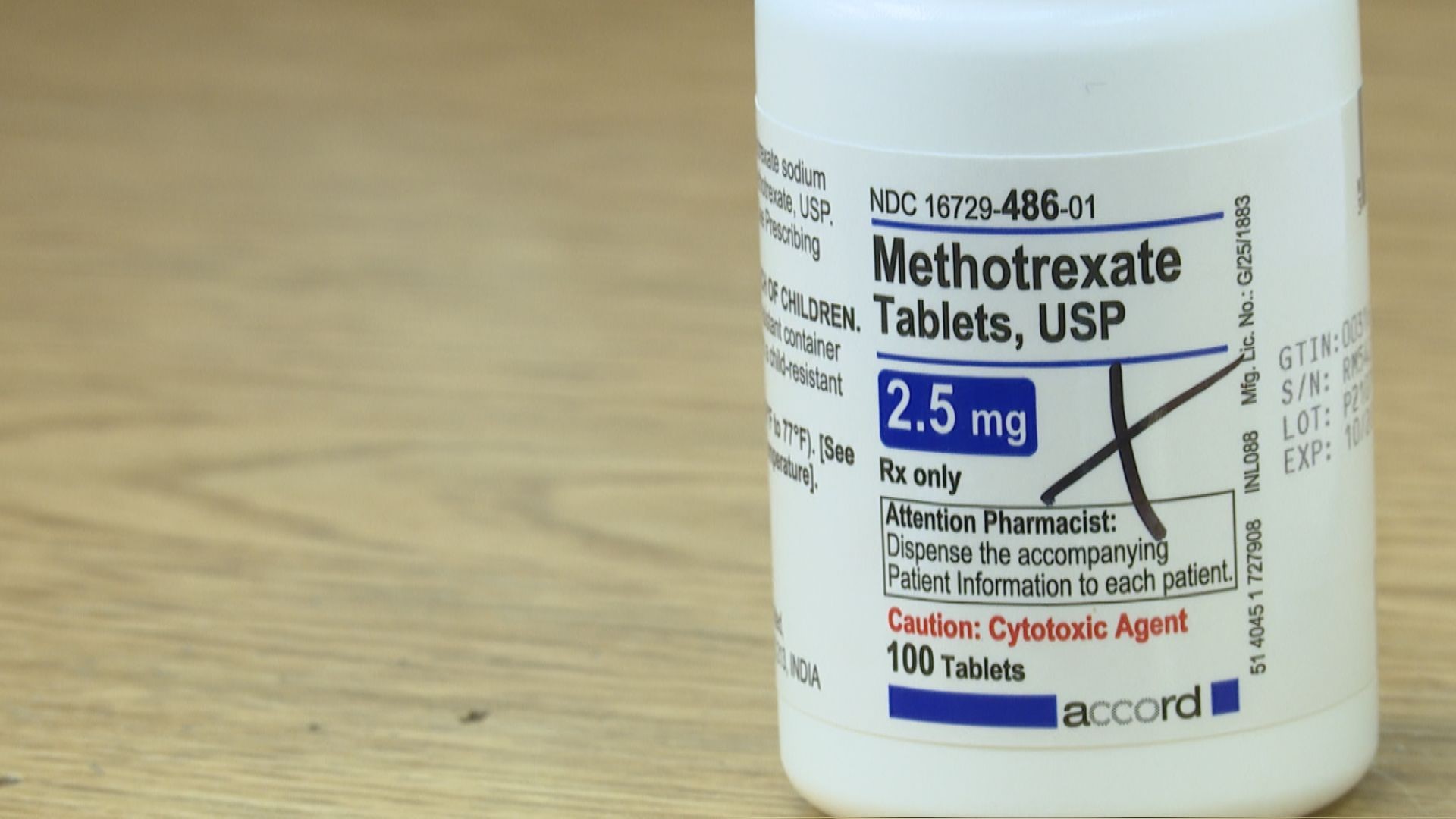LEBANON, Indiana — One week ago, President Joe Biden signed an executive order in an effort to protect abortion access, directing the U.S. Department of Health and Human Services to boost access to abortion pills and contraceptives.
On Wednesday, the HHS's Office for Civil Rights issued guidance to roughly 60,000 retail pharmacies in the U.S., saying that pharmacies cannot turn away a patient with a prescription for a medication that can cause abortion under federal discrimination laws.
But if Indiana's legislature passes a law banning abortions, it's less clear if pharmacies will still be able to fill those prescriptions as they're federally obligated to do.
At Cowan Drugs in Lebanon, owner and pharmacist John Cowan stays busy through the lunch rush filling prescriptions for folks in town. Following the latest guidance from the HHS, Cowan said that likely won't bring any immediate changes in their pharmacy.
"But as long as it's not a safety issue to the patient, usually we will fill a prescription," Cowan said. "Our goal is to provide the patient with the education and the medication that they need to take the prescription safely and effectively, so it's not my decision on whether or not someone's going to use it, it's just to educate the person so they know what they're taking."
This federal guidance states failure to fill a prescription, like methotrexate, which can be used for rheumatoid arthritis and lupus, as well as abortion, would be discriminatory for the patient.
Cowan said currently, even with those medications, they wouldn't have to determine for what purpose a patient is intending on using it.
"Not necessarily, and a lot of times, we don't know what it's used for. So if that's the case, usually we fill it and hopefully, the doctor has prescribed it for the right medical reason and then we, as pharmacists, just fill that prescription," Cowan said.
Pharmacy students Kylie Kelley and Nicole Apa are in their final year of school before becoming pharmacists, working in pharmacies like Cowan's to fill prescriptions and help patients coming in. Kelley said if a prescription comes in, they're expected to fill it unless they believe it could harm the patient.
“If it’s not going to harm the patient, then we are supposed to fill it regardless of how we may feel about it or not,” Kelley said.
“I feel like at the end of the day, whether you’re a doctor or a pharmacist, as healthcare professionals, our goal is the patient safety,” Apa said.
But Kelley and Apa said this new guidance from the federal level could end up coming into conflict with state laws if Indiana passes a ban on abortion, making what to do less clear.
“So I think it’s very confusing and it can be confusing to healthcare professionals on, like, what to do and what protocols to follow,” Kelley said.
Indiana lawmakers will meet in less than two weeks for an upcoming special session, expected to write and pass legislation to ban abortions with few exceptions. That could bring a direct conflict between state and federal guidance on filling prescriptions for medications that can cause abortions.
The Indiana Pharmacists Association sent 13News a statement about the challenges ahead:
“The Indiana Pharmacists Association is aware of the recent guidance HHS issued to all retail pharmacies regarding refusal to fill prescriptions that can be used as abortion medication. We are currently assessing the impact this guidance will have on Indiana pharmacies and how it might conflict with existing state law, including the state’s conscience law. We join other pharmacy organizations in stating that we believe this guidance has added uncertainty, rather than clarity for pharmacies in the wake of Dobbs. The guidance seems to suggest that pharmacists may not use their professional judgement in deciding whether it is medically appropriate or not to dispense medications. This uncertainty undermines the very essence of what pharmacists do every day – ensuring that patients receive medications that are medically appropriate and safe for their individual circumstances.”
"If state law changes at all, once we get the directive and the pharmacy board sends that out, then we’re obviously going to follow the laws that we’re supposed to follow,” Cowan said.

